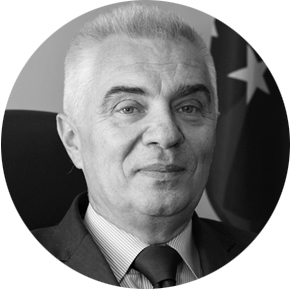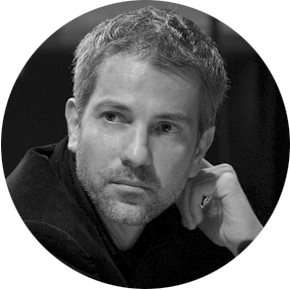The Head of the European Union Delegation to Armenia, Ambassador Piotr Switalski, explains in an interview why Armenia is so important to the EU, and highlights the significant impact of cooperation on the ground
- What are the important values shared by the EU and Armenia?
- Armenia is part of the European family in a wider sense. Armenia shares the values that we consider to be European values. European values, in the cultural sense, are sometimes associated with rationalism, striving for truth, but also respect for diversity, tolerance, and I think in this sense Armenians are as European as many other members of the European Union and the bigger European family.
In the political sense, the common European identity is linked to the three fundamental values of democracy, human rights and the rule of law. By becoming a member of the Council of Europe, Armenia has subscribed to these values. In this sense, the EU and Armenia build their relationship on the strong basis of common values.
Sometimes here in Armenia, some people believe that because Armenian society is so conservative, European values, so-called European values, are too liberal for them. They overlook the fact that one of the elements of the European identity is plurality and diversity, even within the European family. Inside the European Union there are definitely more conservative societies than Armenian society. The beauty of Europe is the richness of its cultures, and this makes enough space for Armenians to feel at home in terms of values.
- Why is the partnership between the EU and Armenia important for Europe?
- For centuries, Armenia has considered itself to be a European state. Armenia is the first state in history that adopted Christianity as its official religion, and therefore the bridge between Armenia and Europe here, perceived from this local perspective, is very strong.
For Europe, Armenia is not only part of the neighbourhood – and neighbourhood is important because of the risks originating from the neighbourhood, that proximity is what makes us feel particularly concerned about what is happening here – but Armenia is part of the European space, Europe in its larger sense. Therefore for the European Union Armenia is important.
Still, being a small country, in some ways an isolated country, because one long frontier is closed, another one is still on fire, due to the conflict in and around Nagorno Karabakh, but still Armenia is important for Europe, Armenia is one of the gates connecting Europe with Asia. Armenia through its border to Iran has a strategic importance, the whole region of the South Caucasus is a crossroad, is a gate, it is a meeting place of different cultures, different interests, but also a place important for trade and for communication. Therefore the European Union is interested in having a strong relationship with a country like Armenia.
- You talked about the neighbourhood: what does it mean to be a good neighbour?
- From the legal point of view, the idea of good neighbourly relations is well recorded in fundamental international and European documents, starting from the United Nations charter, going through the OSCE Helsinki final Act, the Charter of Paris for a new Europe, so good neighbourly relations are one of the fundamental principles of international law, and international relations as such.
Good neighbours are friendly neighbours. Good neighbours are open neighbours. Good neighbours are reliable neighbours. Good neighbours are neighbours whose mutual attitude is based on respect, on solidarity, and on mutual tolerance. But the main essential elements of good neighbourly relations are a peaceful attitude, cooperation, solidarity, the readiness to help in times of need.
- What impact does the EU really have in Armenia?
- I think the European Union in Armenia is an important factor. We are the number one international donor in Armenia. We are the number one foreign investor in Armenia. And we are the number one foreign trade partner of Armenia. But our relationship goes beyond this element of trade, of investment, of development cooperation.
Our contribution to the development of this country is very versatile, visible everywhere in the country, we contribute to the improvement of infrastructure: the EU is the main supporter of the north-south corridor going through the whole of Armenia from the southern border to the northern border, we have provided more than 10 million in the upgrading of the metro system in Yerevan, we spent millions in helping Armenia to organise a modern waste collection system, a water purification system. The EU is helping to close the development gap between Yerevan and other regions, and in particular our efforts in the field of agriculture have this important economic and social aspect. We improve border management, we contribute a lot to improve governance…
The European Union is the main promoter of e-governance in Armenia – few people know for instance that, thanks to the EU, all Armenians are being equipped with new ID cards, more than half a million Armenians have new biometric ID cards. We support improvement of the justice system. With the help of the European Union, 12 court buildings were built in Armenia, but more importantly, several important pieces of legislation strengthening the independence of the judiciary, streamlining the functioning of the justice system were enacted in Armenia.
Education is an important field where we are very present, not only through the possibilities offered by the Erasmus programme, but also the European Union is very visible contributing to the improvement of the vocational education system. We have built, renovated or upgraded several colleges in Armenia, and we also contributed to reforming the education system.
We are also helping Armenia to modernise their human rights protection system, we are helping Armenia to boost their economic environment, in particular through the support to small and medium-sized enterprises, so as you can see, the spectrum of activities of the European Union is very wide, we have our priorities, and I think that the European Union is a visible factor of modernisation of this country.
This interview has been produced by the EU Neighbours East project





















